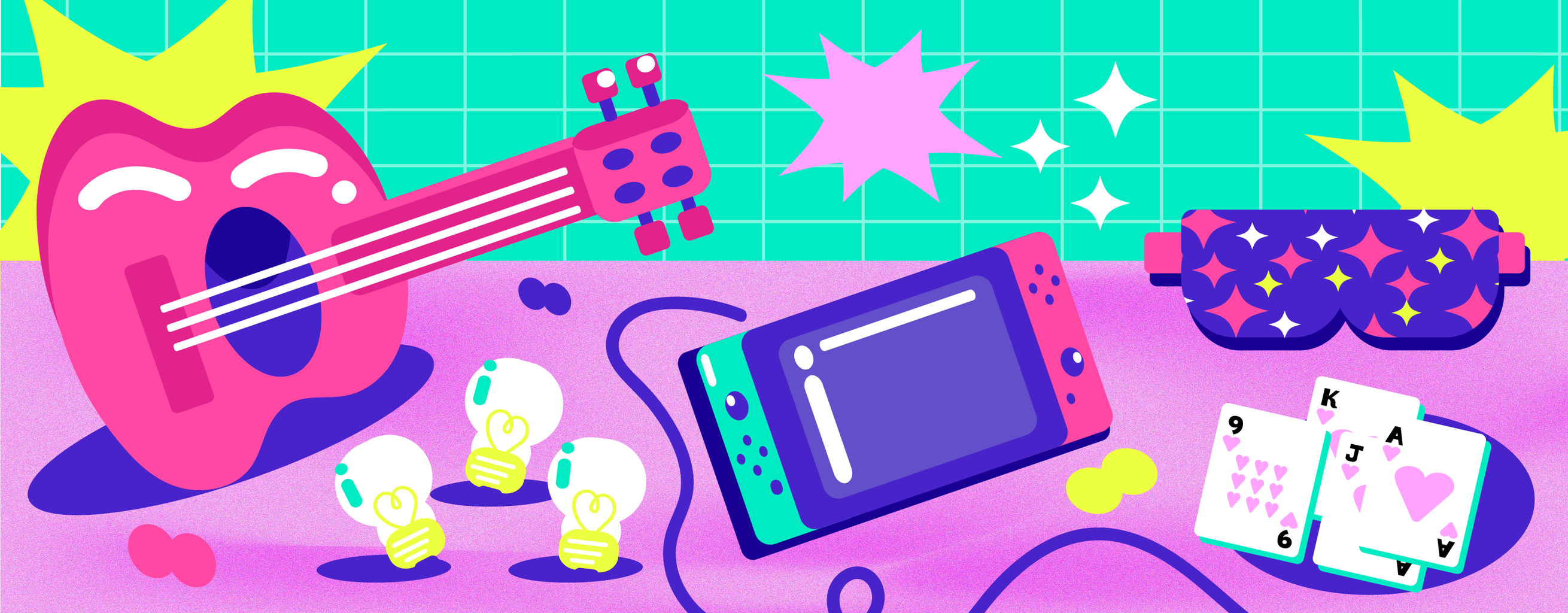Emily Dickinson observes, “That Love is all there is, Is all we know of Love.” In Gabrielle Zevin’s Tomorrow, and Tomorrow, and Tomorrow, Sadie Green, a game designer and developer, employs this quote in a game she creates in college called EmilyBlaster, in which the player must shoot ink blots at falling words of Dickinson’s poetry in the correct order. Her entire class hated it. Uninspired and running out of time, Sadie fell back on her love of poetry to just create. Parallel to life, when nothing else is left, love fills the gaps, whatever form it takes.
Gabrielle Zevin is a New York Times and internationally best-selling author of various novels including The Storied Life of A. J. Fikry. Zevin earned her degree in English at Harvard University and proceeded to live in both New York and California. In addition to her heritage, the author shares many traits and experiences with one of the main characters, Sam.
Sadie Green and Samson Masur meet as children in a hospital game room to play Super Mario Bros. Sadie visits her sister who is sick with cancer and Sam recovers from a tragic car accident that not only leaves him disabled, but also kills his mother. After falling out some time into their friendship, the pair reunites in college after spotting each other at a train station in Boston. Sadie immediately hands him her game, Solution, and leaves on the next train.
Unlike EmilyBlaster, Solution becomes popular with Sadie’s college class, but not necessarily in a positive way. Essentially, a player works in a factory and receives messages about what the factory is producing. To earn a higher score, the player may choose to ignore the messages. In the end, it is revealed that the factory is supplying Nazis, and no matter if the player chooses to read the messages or to ignore them, they lose. Upon playing Sadie’s game, Sam falls in love with her again. Not in the traditional sense, of course. Sam decides at that moment that Sadie is his life partner, collaborator, creative counterpart, game designing complement and most importantly, his best friend. He needs to make a game with her.
That Love is all there is,
Emily Dickinson
Is all we know of Love;
It is enough, the freight should be
Proportioned to the groove.
After much convincing, their first game, Ichigo, is born. A game born of pure ambition, stress, and the audacity of youth, Ichigo took the world by storm and thus began Unfair Games – their video game developing company. Marx Watanabe, Sam’s best friend and roommate, produces the game for them and lends them his apartment for their creative process. Often overlooked, Marx glues Sadie and Sam back together when it seemed like this would be the time that they never spoke again. Marx backs their company and manages it perfectly, but is often treated as an extra, especially by Sam himself. At a certain point, Sam goes as far as to call Marx an “NPC,” a non-playable character in a video game.
Marx views Sam as his little brother and constantly takes care of him. However, Marx crosses one line that can never be taken back. He falls in love with Sadie and does something about it like Sam never could. They end up having a child, but before the child is born, Marx is shot dead by men who disagreed with the politics in one of their games, Mapleworld. The men wanted Sam, but they got Marx, a martyr in every sense of the word. His death tears Sadie and Sam apart again but draws them back together eventually.
Marx, an avid drama fan and retired actor, continued to quote his favorite lines long after he left the theater. He reasons, “It’s tomorrow, and tomorrow, and tomorrow. It’s the possibility of infinite rebirth, infinite redemption. The idea that if you keep playing, you could win.” He quotes Macbeth’s famous tomorrow soliloquy in Shakespeare’s Macbeth, but takes a positive spin on the traditional verse. Every next day is a new chance, a new light. Every day a person respawns like a video game character with another life. Keep living, keep playing the game, and eventually the player might just win. Marx is far more than a supporting character, and is arguably the main character, who holds together relationships and provides the means to make games at all. After all, the title comes from Marx himself.
A cycle of whirlwind connection and deep separation characterize every stage of Sam and Sadie’s relationship. The two always seem to be loving each other and hurting each other but are magnetically drawn back together time and time again. Creative partners, collaborators, game designers or any other name given to the pair cannot sum up the intertwined souls of two people, “often in love, but never lovers.” The phrase is an enigma in and of itself, something that develops throughout their entire story. The line between the pure love of two best friends and the toxic hatred of scorned lovers lies razor thin in the tumultuous seasons of their relationship.

While well-entrenched in the depths of human connection, the reader may notice a surprising lack of depth in the descriptions of the game making process. The ideas always seem to turn out in the way the creators expected and remove the aspect of the thousand tries it takes to produce one good game. While the relationships between characters seem almost too tragic, their work life seems to fit together seamlessly in the context of looking only at the work they produce. Readers interested in the game development aspect of the novel may find themselves disappointed by its surface level description.
Alternatively, the novel extensively handles numerous delicate topics including disability, racial identity and injustice, gender inequality and gun violence. Each character navigates their own struggles in a way that is secondary but incredibly closely entangled with the main plot, examining the interpersonal relationships of the characters over the course of more than 30 years. At the same time, the author considers the ways each character perpetuates their own struggle. Sam never accepts support for his ruined foot and would rather leave than show others his pain. Sadie internally seethes at her lack of recognition for her work on their games as a woman but makes no effort to present herself and speak her side of the story. Marx realizes he cannot make it as an actor because of the prejudice he faces being Asian, and simply gives up. A clash between internal conflict and outward passivity exists in each character and ultimately leads to many of these issues remaining unresolved and ongoing.
As far as relationships go, many circumstances remain strained indefinitely, and Zevin certainly does not shy away from these tensions. The novel concludes with Sam and Sadie finally turning back to each other after another of their extended fallouts that ripped them apart for several years. Readers well-versed in melancholy but a simultaneous hopefulness can ride the rollercoaster of emotions that Gabrielle Zevin drags us along in search of meaning within relationships. In an unexpected but concurrently related way, Zevin manages to combine those who love reading and those who love video games in the simple story she tells: “That Love is all there is, Is all we know of Love.”


